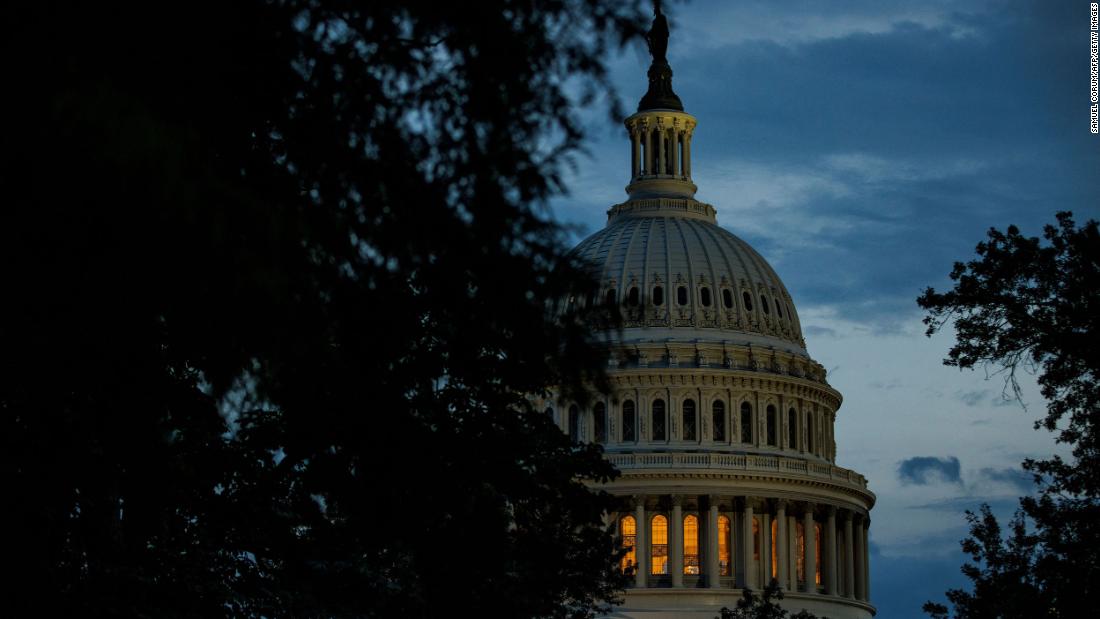

Consider this: Democrats’ majority in Congress is razor-thin. The Senate is a 50-50 split (with Vice President Kamala Harris’ tie-breaking vote giving them the advantage), and Speaker Nancy Pelosi’s control of the House rests on a tight margin.
This year, all 435 House seats and 35 of the 100 Senate seats are on the ballot. Additionally, 36 out of 50 states will elect governors.
Four outstanding Senate primaries to watch. Although a number of big nominating contests are behind us, the Republican primaries in Arizona and Missouri on August 2 and the Democratic primary in Wisconsin on August 9 will carry real implications for November. Even later, the September 13 Republican primary in New Hampshire may shape how competitive the battleground state contest will be.
Masters is part of a wave of Republicans who have won Trump endorsements after parroting his false claims that the 2020 election was stolen from him and downplaying the actions of the pro-Trump mob that attacked the US Capitol on January 6, 2021.
2. The GOP primary in Missouri will decide whether the state will be in play in November. Trump has faced both tremendous pressure from supporters of Eric Greitens to endorse the disgraced former governor and tremendous pressure to back an alternative, with many Republicans worried about Greitens’ electability in the general election in what should be a solidly Republican state.
The Republican field here is crowded, including state Attorney General Eric Schmitt and US Rep. Vicky Hartzler, who have drawn support from prominent GOP Sens. Ted Cruz of Texas and Josh Hawley of Missouri, respectively. The more splintered the Republican vote, however, the lower the threshold Greitens would need to win — a big concern for Republicans who would like to see the party quickly coalesce around an alternative to him ahead of the primary.
3. In Wisconsin, the Democratic Senate primary will shape a fall matchup that represents Democrats’ best shot at unseating a Republican incumbent.
Among the Democrats running are Lt. Gov. Mandela Barnes, Milwaukee Bucks executive Alex Lasry, state Treasurer Sarah Godlewski and Outagamie County Executive Tom Nelson.
4. In New Hampshire, a long list of Republicans are vying for a chance to challenge Democratic Sen. Maggie Hassan after national Republicans’ first choice, Gov. Chris Sununu, passed on the race.
His absence has opened up a crowded primary field that includes state Senate President Chuck Morse, former Londonderry Town Manager Kevin Smith and retired Army Brig. Gen. Don Bolduc, who unsuccessfully sought the nomination for the state’s other Senate seat in 2020.
Hassan, a former two-term governor, defeated GOP Sen. Kelly Ayotte by just 1,017 votes in 2016, and holding her seat this fall is critical to Democrats’ hopes of maintaining the majority in the Senate.
Election denialism has its limits. One emerging lesson for GOP candidates in upcoming primaries is that anchoring your campaign in election lies isn’t always a winning ticket.
On Tuesday, voters in the GOP primary rejected Peters’ bid to take on Democratic Secretary of State Jena Griswold in the fall. Instead, they nominated Pam Anderson, a former county clerk who has defended the integrity of Colorado’s vote-by-mail system.
So while it’s clear Republican voters remain largely supportive of Trump, there are limits to their willingness to entertain his personal grievances.
Fetterman skated passed US Rep. Conor Lamb in the Pennsylvania US Senate Democratic primary, making light work of a polished Marine veteran who had defeated Republicans in tough races for the US House and looked the part of a traditional politician.
Looking under the hood
WHAT MATTERS: What do you make of Trump’s endorsements to this point? His support is obviously coveted in GOP primaries, but it seems like his role as Republican kingmaker is being tested?
CHALIAN: I think you have to think about Trump’s endorsement in two different ways. There is the pure endorsement record that shows him doing quite well. But that may be the less meaningful measure because it includes so many endorsements of completely safe candidates in these primaries who are almost guaranteed victory.
The more meaningful way to look at Trump’s endorsement record is where he has endorsed in highly competitive GOP primaries. And when it comes to his high-profile Senate endorsements, he’s got a pretty good track record, including JD Vance’s win in Ohio, Ted Budd’s win in North Carolina and Mehmet Oz’s victory in Pennsylvania. He also had a win with Herschel Walker in Georgia, but he was facing minimal competition.
However, when Trump has gotten behind a candidate simply to put his continued lies about 2020 being a stolen or fraudulent election (it was not) front and center, he doesn’t tend to fare as well. A prime example of this was his drafting and backing of David Perdue in the Georgia gubernatorial primary. Trump came in for a big defeat there as incumbent Gov. Brian Kemp cruised to victory. It was a similar story in the secretary of state’s race there.
I think you can sum up Trump’s mixed record thus far in the primary season this way: Trump is still the biggest political force inside the Republican primary electorate, but he may not be the determinative force.
WHAT MATTERS: There’s still a number of big primaries in August. Which races are you going to be watching the closest?
Trump and his team are heavily invested in this race to defeat Cheney and she could potentially lose her job because she put history, democracy and country above all else. It’s quite a story.
CHALIAN: I think it is way too early to tell exactly how these big news-driving events will impact voting come November. I do believe the economy and inflation is likely to remain the top issue for voters this fall, but abortion rights and accountability for January 6 might certainly motivate some Democratic voters to get to the polls.
I think Republicans are clearly trying to make sure to keep every political conversation focused on inflation and the economy above all else, because they believe that’s the strongest argument to make to not only their reliable base voters, but also to the all-important middle.
CNN’s Eric Bradner, Gregory Krieg, Gabby Orr and Dan Merica contributed to this report.
